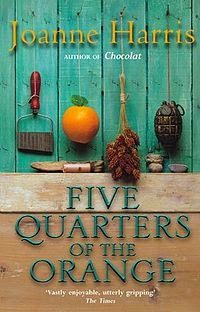 Thinking about my childhood growing up and through present day I realized my family doesn't really have many traditions with food. There are not any religious (or non-religious) holidays that we celebrate in any particular way, except Thanksgiving. Even with Thanksgiving though, we do the typical feast that most people do like with turkey, stuffing, mashed potatoes, graving, the works... But aside from that we do not have any specific foods for any other holidays. The only thing that I could really say is a tradition is just who we spend our holidays with, for example every Christmas Eve we go out to dinner with my aunt and uncle, we either meet somewhere near West Bloomfield, where they live, or we meet near my hometown. I have always really enjoyed going out on Christmas Eve because we always get really dressed up and have a grand time with the family. Christmas day is usually spent with a close family either at our house or theirs. I think I enjoy this time the most because this is my best friends family and her parents are my parents best friends so we always have a lot of fun! But regardless, no matter where we spend our holiday time, the food is always different. I do not mind this though, I actually enjoy not knowing what is going to be for dinner every holiday, it is nice to be able to decide with my parents what we would like to make each year or order at the different restaurant. Having Thanksgiving the only meal set in stone is enough for me because that one is definitely my favorite, I mean I'm already looking forward to this years feast!
Thinking about my childhood growing up and through present day I realized my family doesn't really have many traditions with food. There are not any religious (or non-religious) holidays that we celebrate in any particular way, except Thanksgiving. Even with Thanksgiving though, we do the typical feast that most people do like with turkey, stuffing, mashed potatoes, graving, the works... But aside from that we do not have any specific foods for any other holidays. The only thing that I could really say is a tradition is just who we spend our holidays with, for example every Christmas Eve we go out to dinner with my aunt and uncle, we either meet somewhere near West Bloomfield, where they live, or we meet near my hometown. I have always really enjoyed going out on Christmas Eve because we always get really dressed up and have a grand time with the family. Christmas day is usually spent with a close family either at our house or theirs. I think I enjoy this time the most because this is my best friends family and her parents are my parents best friends so we always have a lot of fun! But regardless, no matter where we spend our holiday time, the food is always different. I do not mind this though, I actually enjoy not knowing what is going to be for dinner every holiday, it is nice to be able to decide with my parents what we would like to make each year or order at the different restaurant. Having Thanksgiving the only meal set in stone is enough for me because that one is definitely my favorite, I mean I'm already looking forward to this years feast! One thing that is kind of a tradition, I suppose, is that my mom likes to always make corned beef and cabbage on St. Patrick's Day and we usually dye all of our drinks for the day green for fun! I love doing this because I enjoy my Irish heritage and like to celebrate it while I can on St. Patrick's Day!





























